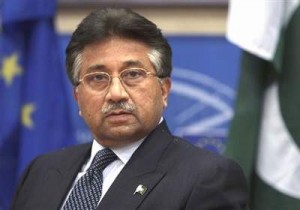- Obama’s endorsement of the proposals advanced by organisations like Another18 can have far-reaching
consequences
Washington Post
Carl Gershman
 United States President Barack Obama’s forthcoming visit to Cuba comes as preparations are being completed for the Seventh Congress of the Cuban Communist Party (PCC), scheduled to open in Havana on April 16. The main order of business will be to establish the process for transferring power to a new generation of Cuban leaders in 2018, when Raul Castro will step down as President. While this change will mark the end of the Castro era in Cuban politics, the regime has made clear that it considers the current system “irrevocable” and that it won’t renounce a single one of its “revolutionary and anti-imperialist” principles, as the party’s official newspaper, Granma, stated recently in an editorial on Obama’s visit.
United States President Barack Obama’s forthcoming visit to Cuba comes as preparations are being completed for the Seventh Congress of the Cuban Communist Party (PCC), scheduled to open in Havana on April 16. The main order of business will be to establish the process for transferring power to a new generation of Cuban leaders in 2018, when Raul Castro will step down as President. While this change will mark the end of the Castro era in Cuban politics, the regime has made clear that it considers the current system “irrevocable” and that it won’t renounce a single one of its “revolutionary and anti-imperialist” principles, as the party’s official newspaper, Granma, stated recently in an editorial on Obama’s visit.
The chief item on the agenda of the Seventh Congress will be the consideration of a new electoral law for the general election in 2018, when Castro’s successor will be chosen. Under the current system, according to the independent blogger Yoani Snchez, “the electoral machinery is strictly controlled” to ensure whatever outcomes the regime wants. Control is enforced at the grass roots by the Committees for the Defence of the Revolution (CDRs), which Fidel Castro called “a Revolutionary system of collective surveillance” when he established it in 1960. The CDRs determine the voter lists and oversee town hall assemblies at which candidates are nominated by a show of hands. The overall voter registry is administered by the Ministry of the Interior, which is a military institution. There is no secret ballot and fear of reprisals blocks the selection of candidates who might have “counter-revolutionary” views. Campaigning is not allowed, candidates are banned from putting forward a programme, and there is no right to ask what a candidate thinks about a specific problem. Voters, according to Snchez, cast ballots “for a photo and a list of merits – as inflated as they are impossible to prove”. Needless to say, the PCC is the only recognised party.
The regime has not offered any details about the changes to the law being considered, presumably, to give some legitimacy to the 2018 election. There is talk, for example, of allowing the electorate a choice of candidates, and candidates might be permitted to engage in public debates. But the changes are unlikely to be more than cosmetic, another example of what Cuban democracy leader Oswaldo Pay, who died in 2012 under suspicious circumstances, called “a fraudulent change so those that have all the power may keep it and once more marginalise the people of Cuba”.
But Cuban democrats are not ready to accept that. Rosa Mara Pay, the daughter of the martyred activist, has launched a campaign called Cuba Decides that builds upon her father’s famous Varela Project and calls for a plebiscite on whether to hold free, fair and multiparty elections. And just last week, a coalition of pro-democracy nongovernmental organisations called Another 18 presented the draft for an alternative electoral law to the National Assembly and held a news conference and a forum on the theme ‘For Freedom of Choice’.
The alternative law drafted by Another 18 is a comprehensive set of legislative proposals to guarantee the right to freely elect officials and to remove the CDRs from the process; to establish transparent rules for updating and correcting the electoral registry; to give citizens the right to run as candidates for public office at all levels, thereby eliminating the Candidacy Commissions and town hall assemblies that control the nomination process; to recognise the basic freedoms of expression, assembly and association that are essential for real electoral competition; and to establish an independent electoral body to administer the voter registry and safeguard the integrity of elections.
The regime is fearful that Another 18 might begin to mobilise grass-roots support for its proposals, and it arrested Jos Daniel Ferrer, the leader of the Patriotic Union of Cuba, and detained others to prevent them from participating in the forum on free elections. International support for those fighting for democracy in Cuba has never been more needed.
When former president Jimmy Carter visited Cuba in 2002, he used an unprecedented public address carried live on state radio and television to urge that Cuba “join the community of democracies,” and to praise the Varela Project, which most Cubans knew nothing about, as the government had forbidden any mention of it by state media.
Obama needs to do at least as much when he visits next week. Given the timing of his visit, right before the party congress and at a moment when Cubans are beginning to think about the potentially historic election in 2018, his endorsement of the proposals advanced by Another 18 and for the cause of real democracy in Cuba could have far-reaching consequences.
Diplomatic relations between the Cuban government and the United States have now been normalised. The time has come for the Cuban government to normalise its relations with the Cuban people.




